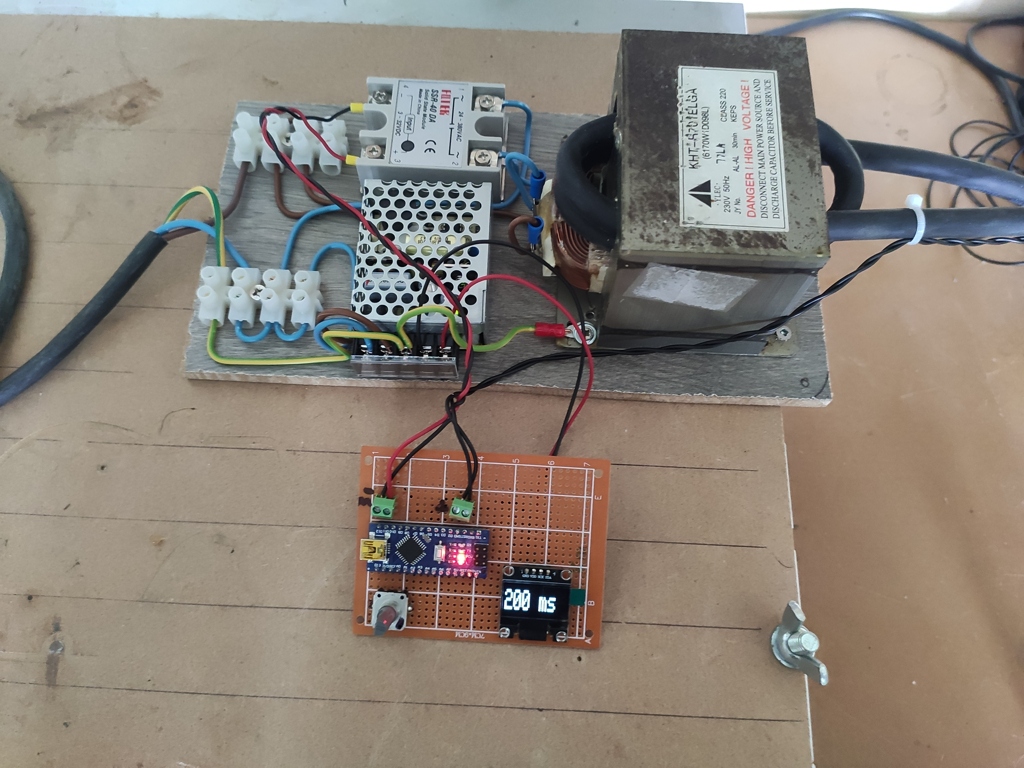Hi,
I have built a microvawe transformer spotwelder, I have put a single turn of welder wire for in the secondary and I’m timing it with arduino. Worth mentioning it was/is a 230V transformer. Electrodes are sharpened copper rods. I believe the voltage is still high. The spotwelds it produces are slightly discolored and not as strong as you would expect. Is this design fundamentally borked? Is there anything else I can make to make it better?
Photo from test stage before it was built into a project box, it is less “shocking” now.



If it’s a 240v transformer, the primary will have less turns than a 120v one. You may not have a high enough voltage out of your new secondary because of that.
Would trimming down the voltage on the primary with a triac would help?
You need to go up in voltage, not down.
Try it on 240v. (check your 5v supply can handle that, or power it separately)
I have 230V or 400V three phase. I live in the EU. So this cannot be solved without replacing the winding on the transformer I guess.
If it’s just a matter of getting a larger voltage, then you already got 400V. No need for new windings, unless the insulation on the primary can’t handle 400V.
I need lower voltage. 1-2V on the secondary. I have 3V rms now.
If you have a 230V supply and a 230V transformer, you are fine. I believe they thought you were using a 120V supply on a 230V transformer.
Raising the input voltage will probably not get you what you want.